Today was the day that Andrew Thomasson and I made our first attempt at collaborative video. Now I do a lot of ShowMe videos, but having my face and my entire screen in the video is not quite as comfortable for me. I mean, ShowMe (ironically) lets me hide. Screencasting a Google+ Hangout is new territory.
We have been sending tweets and emails and texts back and forth hammering out details and plans, but it was time to take the plunge and get it going.
Our tweets right after the screencast sums it up pretty well:
@thomasson_engl Are you kidding?Collaborating on #flipclass videos is like crack for me (not that I've ever done crack).
— Cheryl Morris (@guster4lovers) June 30, 2012
1. Having a plan is a good idea. We outlined the entire video ahead of time, but allowed for spontaneous dialogue and direction. It wasn't as polished as it could be (and will be as we get better at this).
2. The teacher/student dynamic (Jon Bergmann and Aaron Sams made use of this in their collaborative videos) works pretty well. I think it's the best way of showing the process, rather than just lecturing.
3. Camtasia really is awesome. It took me a while to figure out how to do everything I wanted, but I'm relatively happy with the editing. It was pretty easy to get it up and running, and even though I had to pretty much learn everything as I went along, the 12 minute video took me about 90 minutes to complete.
4. Working with someone else makes the video so much more powerful. I can't possibly overstate this. Making a ShowMe video is great. But having TWO teachers combining wisdom and practice to teach a lesson? That's just phenomenal.
5. Having someone else preview the video helps catch errors. I had a spelling mistake, an unfortunate Google auto-correct moment, some misaligned camera angles, and a few spots of dead air. With those tweaks, it was much better. And I wouldn't have caught them or made them if someone else hadn't been involved.
6. Every Flipped teacher should try a collaborative video at some point if they can. It pushes you to be better than you are alone. And that's what teaching is all about.
Okay, enough about me. Here's the video.

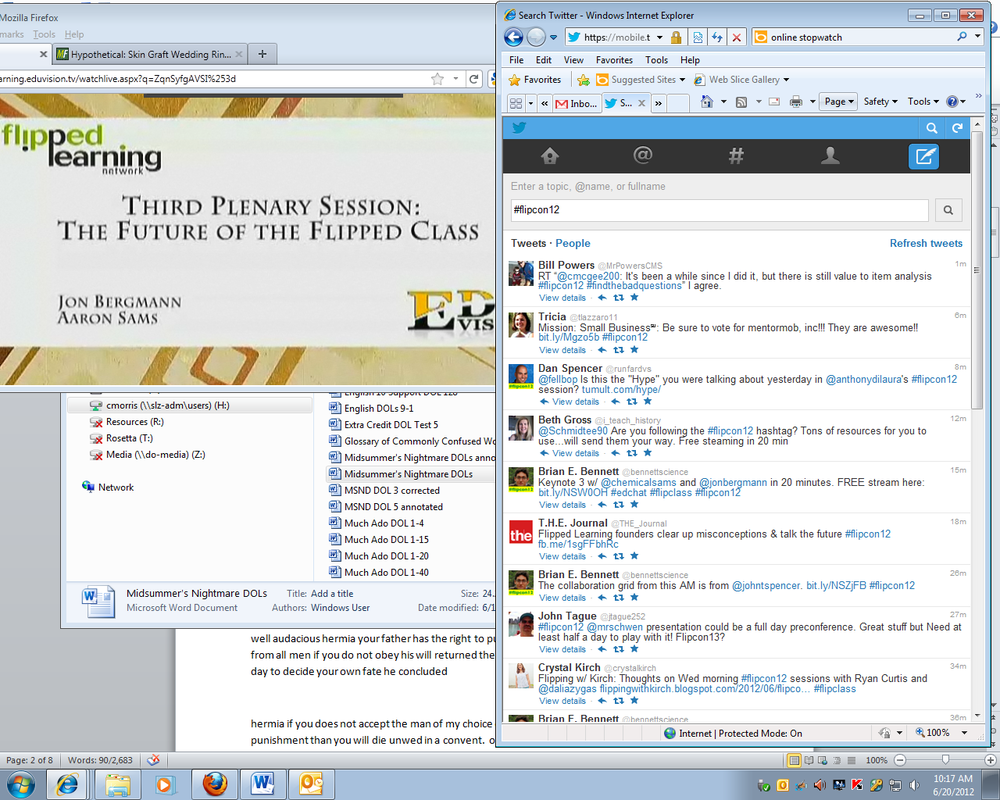
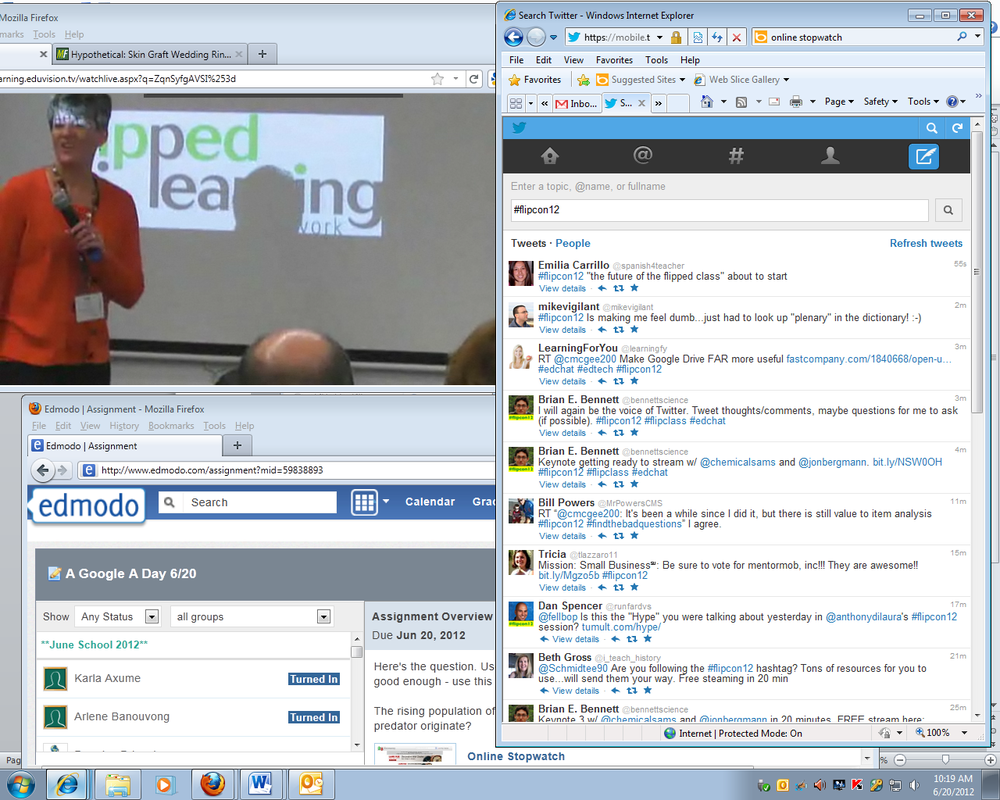
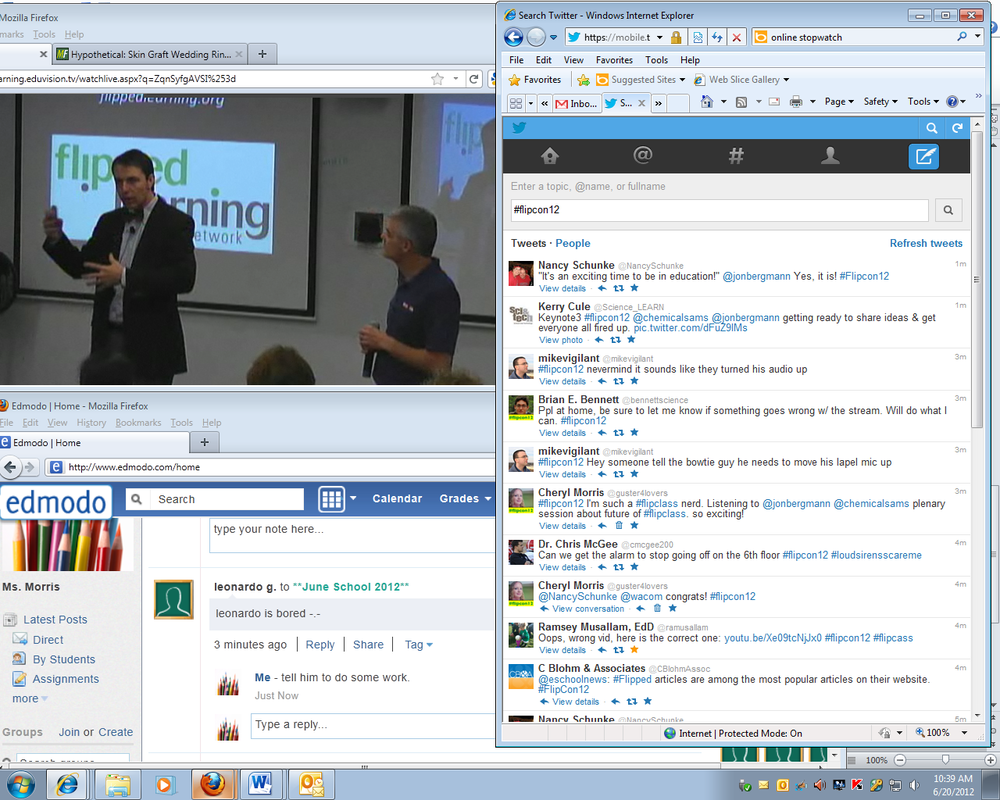
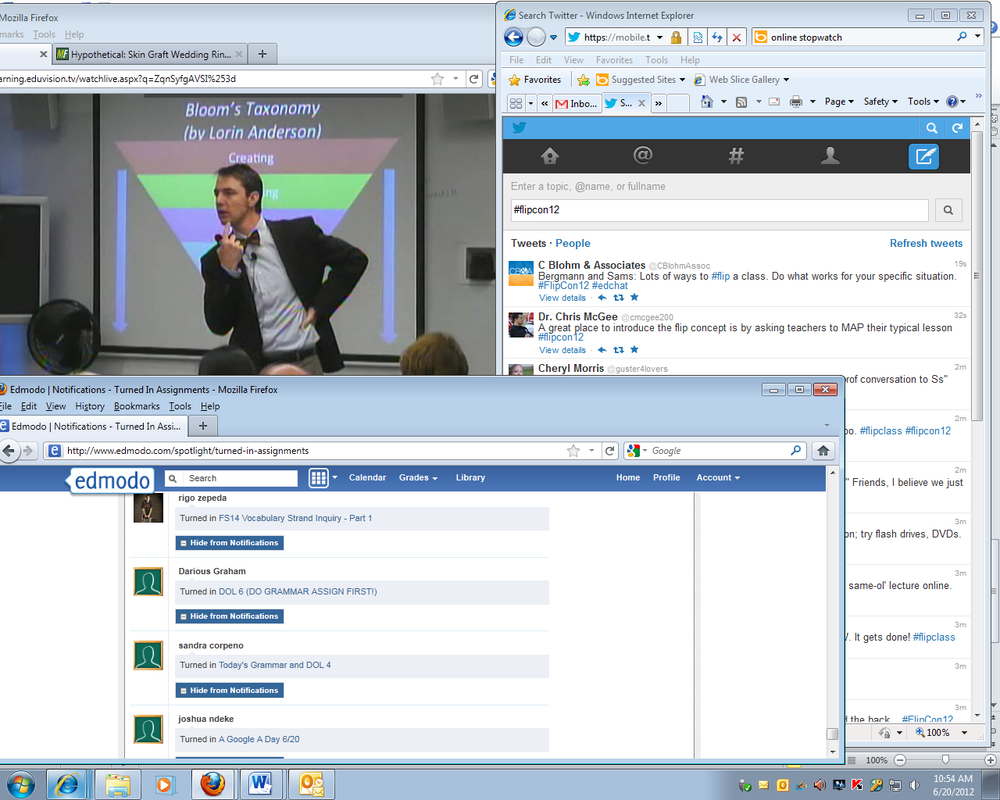
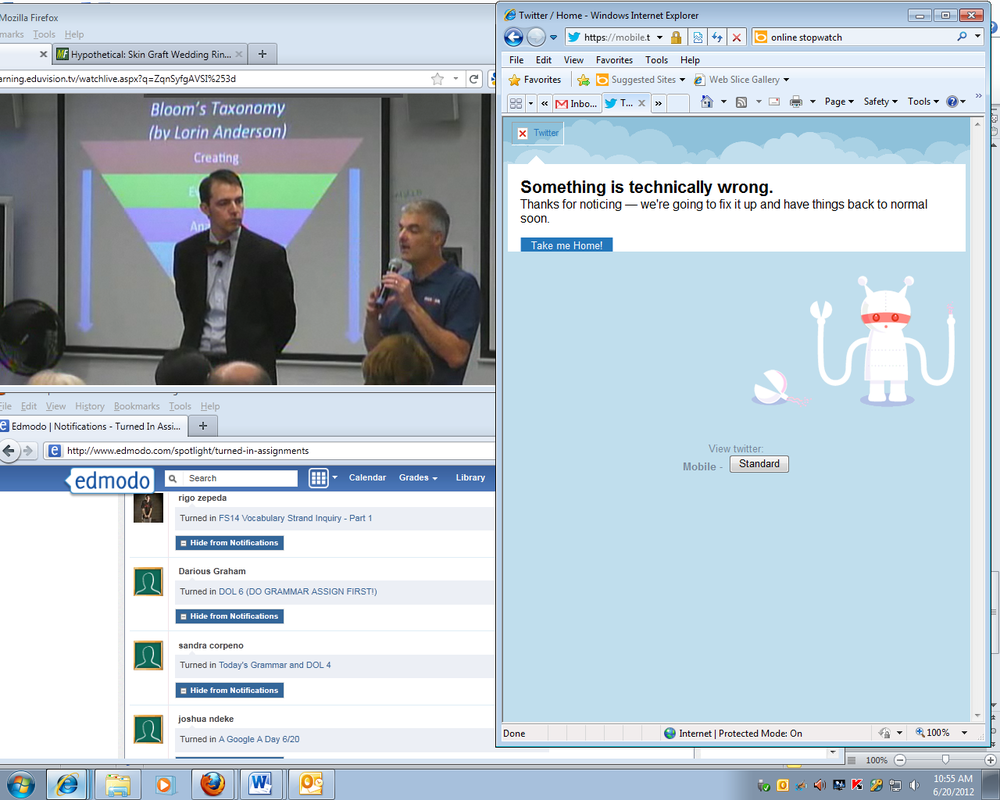

 RSS Feed
RSS Feed
